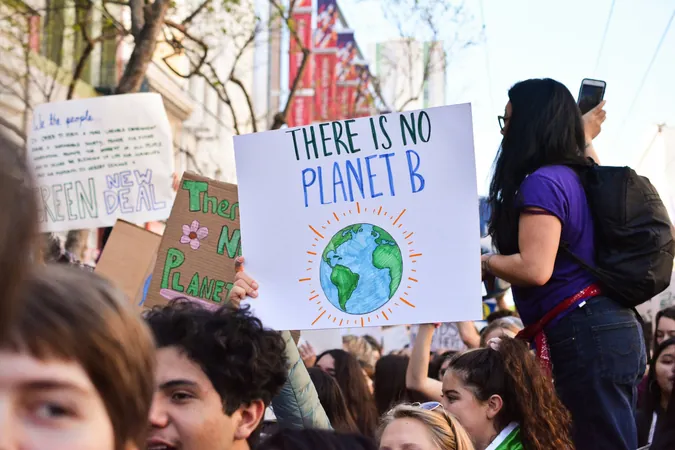
Public Trust: The Missing Ingredient for Successful Climate Policy?
2025-05-27
Author: Arjun
The Trust Deficit in Climate Policy
When it comes to crafting effective climate policies, a startling oversight is taking place: the lack of attention to social factors in favor of technological fixes and economic arguments. According to researchers from Radboud University, this could jeopardize public support at a critical juncture in the climate crisis.
Vincent de Gooyert, a sociologist and lead author of the study published in Earth System Governance, emphasizes that without public trust, meaningful progress in climate policy is not just unlikely—it's impossible. For instance, the technology for carbon capture and storage (CCS) is deemed vital for reaching climate targets but remains largely undeveloped due to a lack of public backing.
Caught in a Vicious Cycle
The dilemma is clear: industries are clamoring for government subsidies to invest in CCS, but governments claim that without public support, such investments are untenable. Meanwhile, the public demands that industries take responsibility before the government pours money into these technologies. This scenario has created a frustrating cycle of inertia.
A Market-Driven Approach Is Flawed
Currently, the climate discourse is dominated by a techno-economic lens, which posits that every solution must have immediate market value. De Gooyert points out that solutions like CCS, which lack this direct value, struggle to gain traction. He notes, "A policy without public support tends to breed resistance rather than acceptance."
Collaboration Is Key
De Gooyert, along with his colleagues Senni Määttä, Sandrino Smeets, and Heleen de Coninck, brings extensive experience to this conversation, having worked with various stakeholders across Europe—from Finland and Sweden to Spain and Belgium. Their findings reveal a consistent theme: effective policy hinges on mutual trust.
The Need for Transparent Dialogue
Many policymakers operate under the assumption that clear communication will naturally rally public support. However, this one-way dialogue can backfire, leading to public skepticism and resentment. De Gooyert warns that this often results in citizens feeling alienated, believing that policymakers are simply dictating terms.
Innovative Solutions Like Citizens' Councils
To bridge this trust gap, De Gooyert and his team advocate for the establishment of independent scientific advisory councils as well as citizens' councils. These platforms would provide citizens with the means to form educated opinions while embracing the complexity of climate issues. Honest discussions that acknowledge difficult choices and transparently present options and their consequences are vital for fostering genuine engagement and support.

 Brasil (PT)
Brasil (PT)
 Canada (EN)
Canada (EN)
 Chile (ES)
Chile (ES)
 Česko (CS)
Česko (CS)
 대한민국 (KO)
대한민국 (KO)
 España (ES)
España (ES)
 France (FR)
France (FR)
 Hong Kong (EN)
Hong Kong (EN)
 Italia (IT)
Italia (IT)
 日本 (JA)
日本 (JA)
 Magyarország (HU)
Magyarország (HU)
 Norge (NO)
Norge (NO)
 Polska (PL)
Polska (PL)
 Schweiz (DE)
Schweiz (DE)
 Singapore (EN)
Singapore (EN)
 Sverige (SV)
Sverige (SV)
 Suomi (FI)
Suomi (FI)
 Türkiye (TR)
Türkiye (TR)
 الإمارات العربية المتحدة (AR)
الإمارات العربية المتحدة (AR)